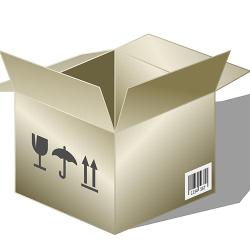Source Institutions
Source Institutions
Add to list Go to activity
Activity link broken? See if it's at the internet archive

Learners determine the surface area and volume of two identical boxes, and then figure out the dimensions of a cubical box with the same volume. Then they construct a new, cube-shaped box from one of the original boxes, discovering the new box has less surface area than the original box. This activity requires learners to have previous knowledge of calculating surface area and volume. Activity time can be divided over multiple meetings.
- Under 5 minutes
- 2 to 4 hours
- 1 cent - $1 per student
- Ages 11 - 14
- Activity, Lesson/Lesson Plan
- English
Quick Guide
Materials List (per student)
- two identical boxes
- ruler (metric)
- calculator
- scissors
- tape (masking and transparent)
- large envelope or zipper-style plastic bag
- large paper clip
Subjects
-
Engineering and Technology
-
Engineering
- Manufacturing Engineering
-
Engineering
-
Mathematics
-
Algebra
- Equations and Inequalities
-
Geometry
- Plane Geometry
- Solid Geometry
-
Measurement
- Units of Measurement
- Size and Scale
-
Algebra
-
The Nature of Technology
- The Design Process
Audience
To use this activity, learners need to:
- see
- read
- touch
Learning styles supported:
- Involves hands-on or lab activities
Other
Components that are part of this resource:
Includes alignment to state and/or national standards:
This resource is part of:
Access Rights:
- Free access
By:
- Hebrank, Mary R.
Source Collection
- TeachEngineering
Rights:
- All rights reserved, Regents of the University of Colorado, 2004
